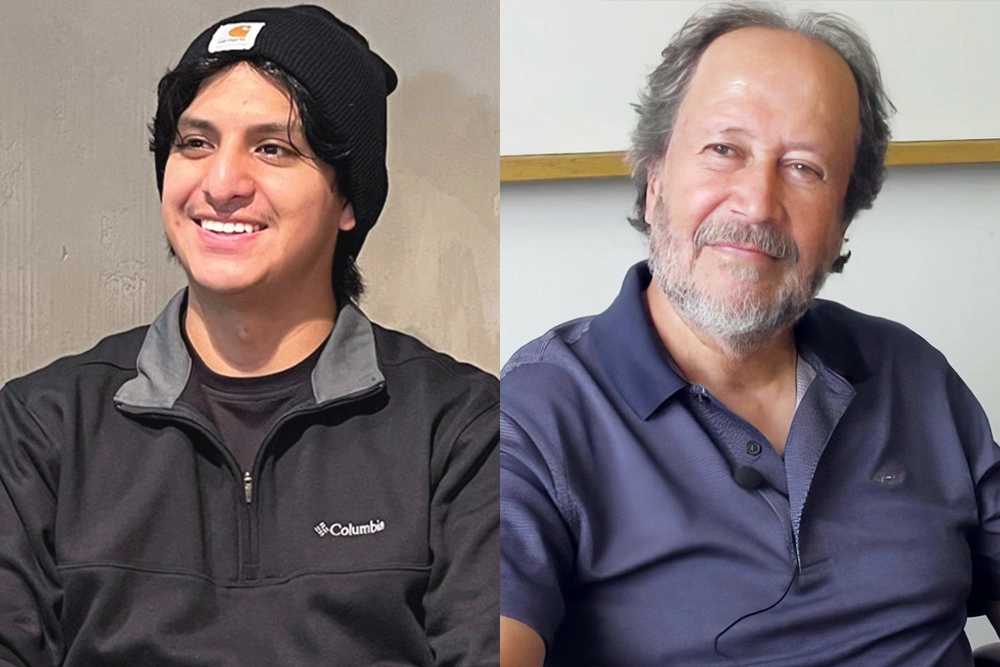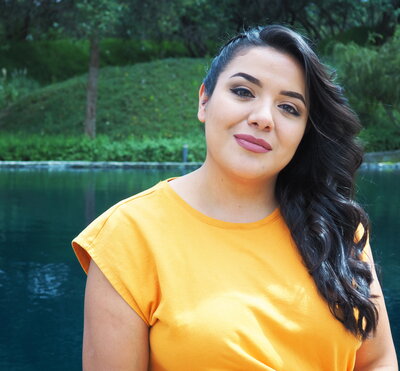
As an oral historian, Illinois history professor Yuridia “Yuri” Ramírez records the stories of people who have never been written about in history books. “These people have, in some ways, made the most impactful legacies in their communities, and people don’t know who they are,” Ramírez said.
Through the Humanities Research Lab, a collaborative effort between the Humanities Research Institute and the Office of Undergraduate Research, Ramírez’s oral history methods class provides students with the tools, methodology and the opportunity to record the stories of community members from the Champaign-based International Prep Academy and the Immigration Project.
Sophomore Iván Olivo is recording the history of Marcelo Lepeley, a Chilean who emigrated to Decatur, Illinois, more than 40 years ago. Lepeley and friends started a folklore group to share stories about their culture. They have performed at La Casa Cultural Latina at Illinois and at the University of Illinois Springfield and Chicago campuses. Lepeley is also an amateur astronomer and has created a community of fellow astronomy enthusiasts through telescope viewing.
Olivo is learning a new method of historical research that allows him to represent the voice of the person he’s interviewing. “I feel like I learned to write history as a song rather than just jotting things down,” Olivo said. “This feels more like trying to understand it, like playing the rhythm from the sources rather than just the words by themselves.”

Ramírez believes her students are expanding their concepts of research, bringing them out of the archives and into the community. “I like the archive, but I love to talk to people and have a genuine desire to get to know people,” Ramirez said. “Oral history is a way to get out of the archives that don’t really talk back. Working in this field made me realize that history isn’t just about dead people.”
Unlike scientific fields, which can offer opportunities for undergraduate students to participate in lab-based research, disciplines in the humanities are discovering new ways to engage students in research opportunities, said Antoinette Burton, the director of HRI.
“I think the humanities are at a tipping point, and ethical engagement with community-based questions and crises and frontline problems is where the humanities needs to be,” Burton said. “We are interested in cultivating the plurality of research opportunities and also of pushing the boundaries of what scholarly and academic research might look like, especially classroom-based versions of it.”
Community-engaged work provides students opportunities to examine where they live. “It’s a great opportunity for many of them who don’t get out that much to see how other people live in the world,” Ramirez said. “It gives them an invitation to see the nonprofit world and all the work that can be done with limited funds and staff. And it shows the value of those organizations.”
Moving out of a regular classroom setting to a community-engaged research experience can be challenging, said Karen Rodriguez’G, director of the Office of Undergraduate Research. That’s why her office and Burton’s provide plenty of guidance and regular team meetings for the instructors.
“We discuss how to break the instruction into component parts and how to get students to collaborate with each other,” Rodriguez’G explained. “It’s thinking carefully about mentoring students in research methods rather than teaching them in a regular classroom setting.”
Previously, students in HRL courses have presented their research at the Undergraduate Research Symposium and invited their interviewees to attend.
“Many of the community members we interact with are like my parents: They have a 6th grade education, they are immigrants and they feel uncomfortable when they are invited to events on campus,” Ramírez said. “This sort of an exchange can burst that bubble. As a public institution we have a responsibility to the community in which we live. Intellectual thinking, intellectual exchange doesn’t just happen within these walls. The people we work with are also theorists and scholars in their own right.”
Rodriguez’G said the research experience can provide students not only with confidence in their abilities but also with skills that employers value.
“Students develop a research question and gather data and really engage with people. They get the opportunity to understand what the particular challenges or problems or questions are and then look for a solution with those partners,” Rodriguez’G said. “I really see these students at the beginning of the semester thinking, ‘Oh my gosh, this is so overwhelming.’ And by the end, they’re presenting on it.”
Olivo, who plans to attend graduate school and study Mexican American history, sees his experience as a timely one in the story of U.S. immigration. A first-generation American, he believes that telling the stories of people like Lepeley can connect immigrants from throughout the world to their new identity as Americans.
“It’s important to tell these stories that haven’t been told,” Olivo said. “Sometimes the story of immigrants isn’t heard or is misinterpreted. It’s important to show how they have created their identity as Americans.”
Editor's note: This story originally appeared on the University of Illinois News Bureau website